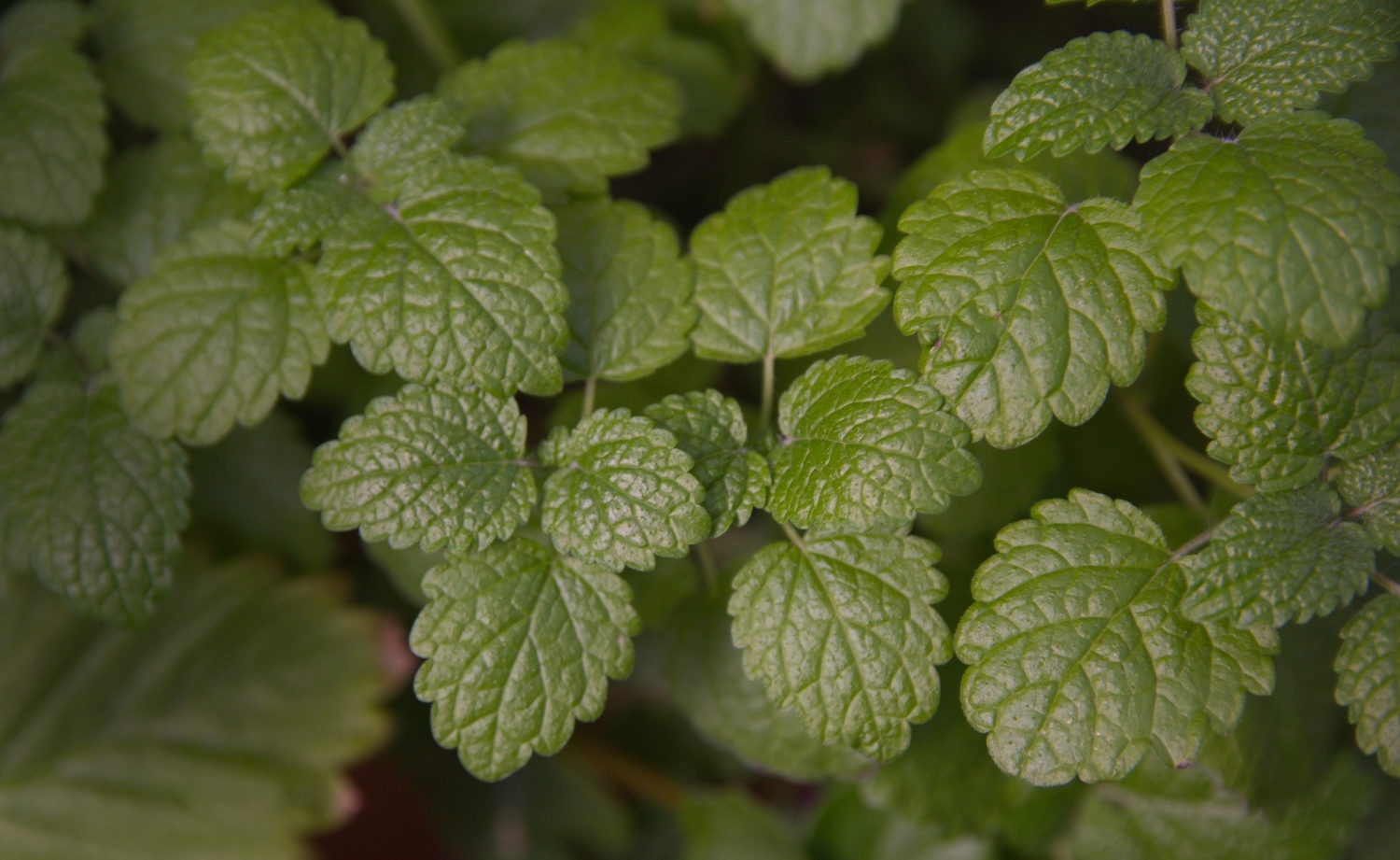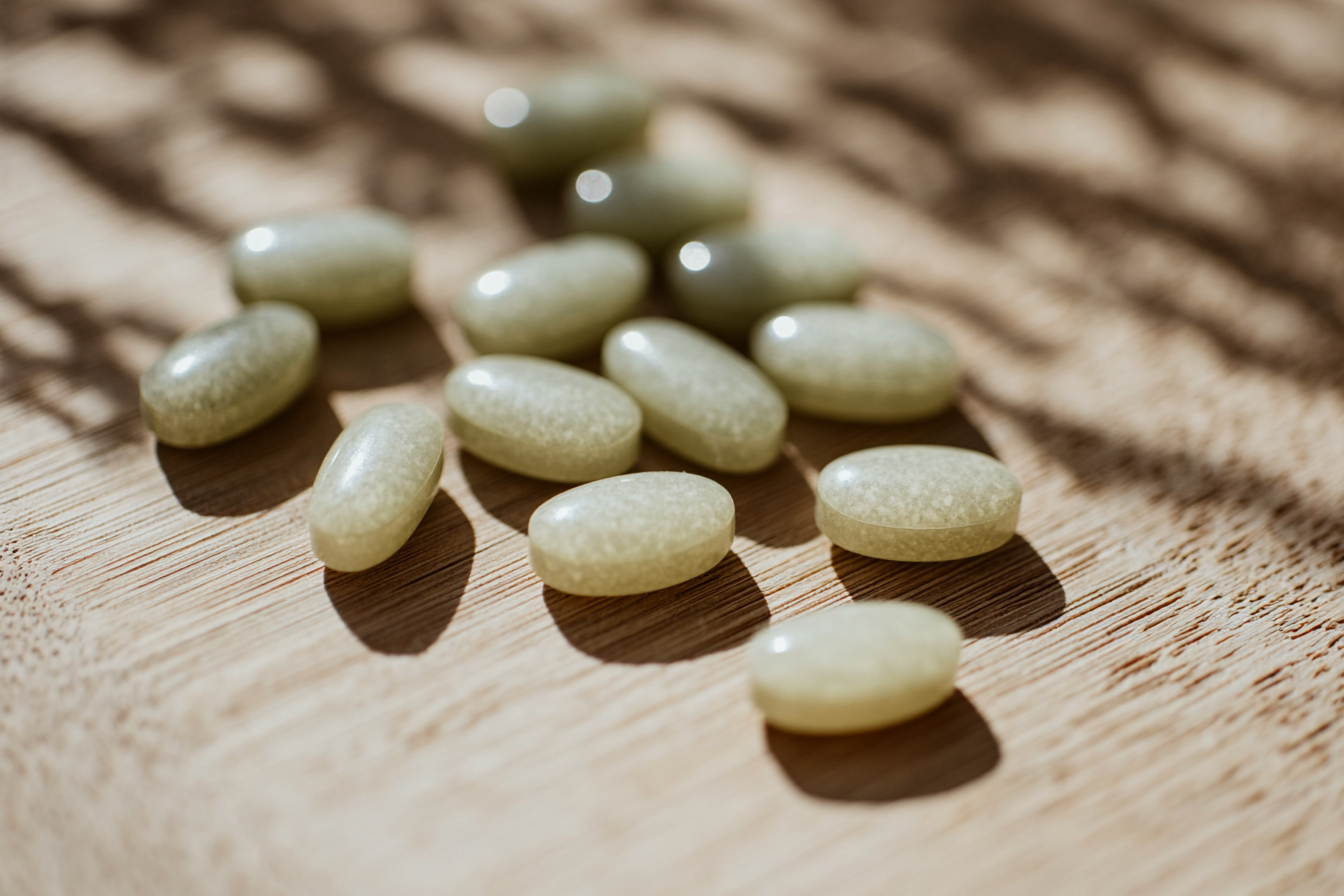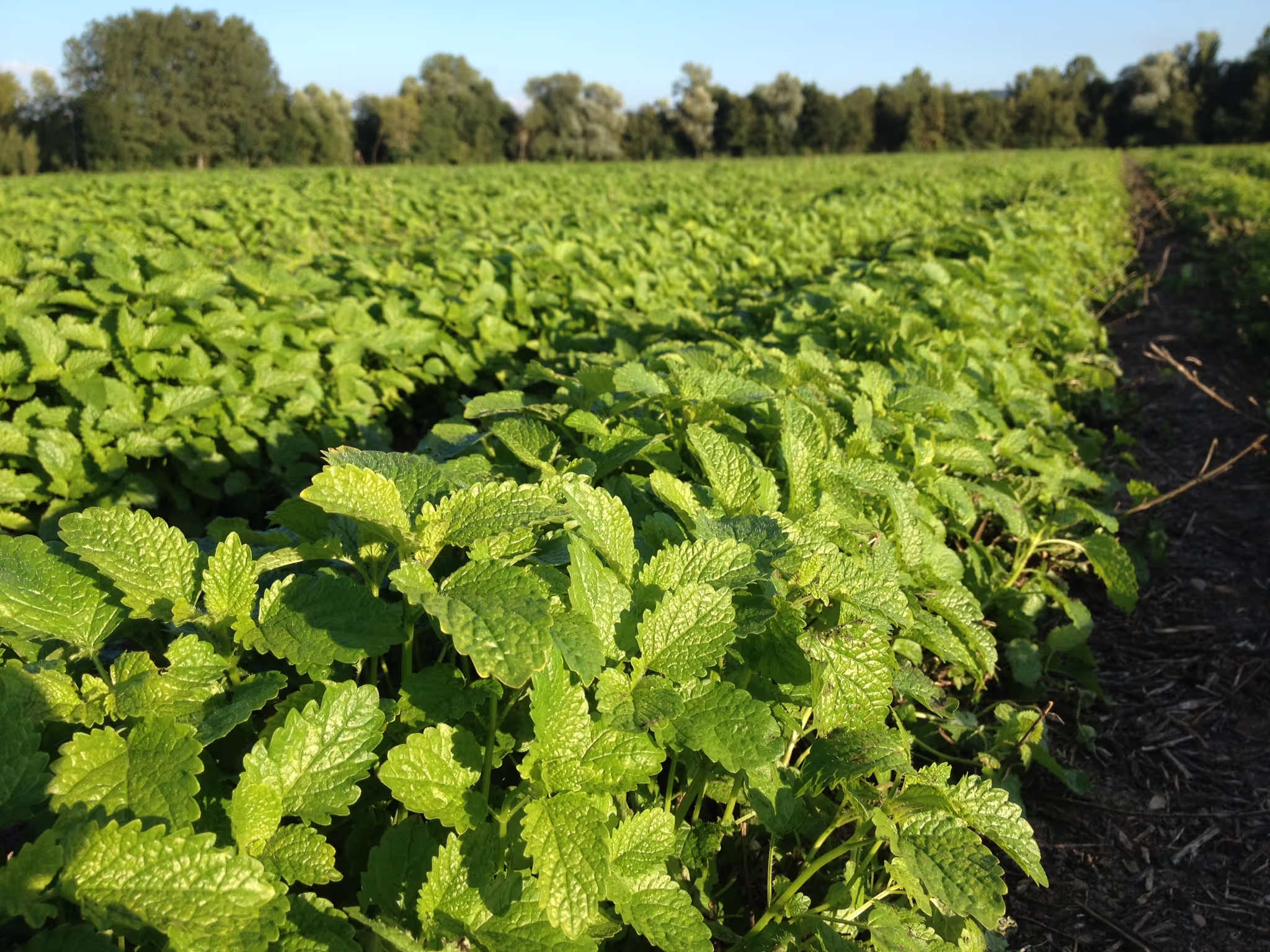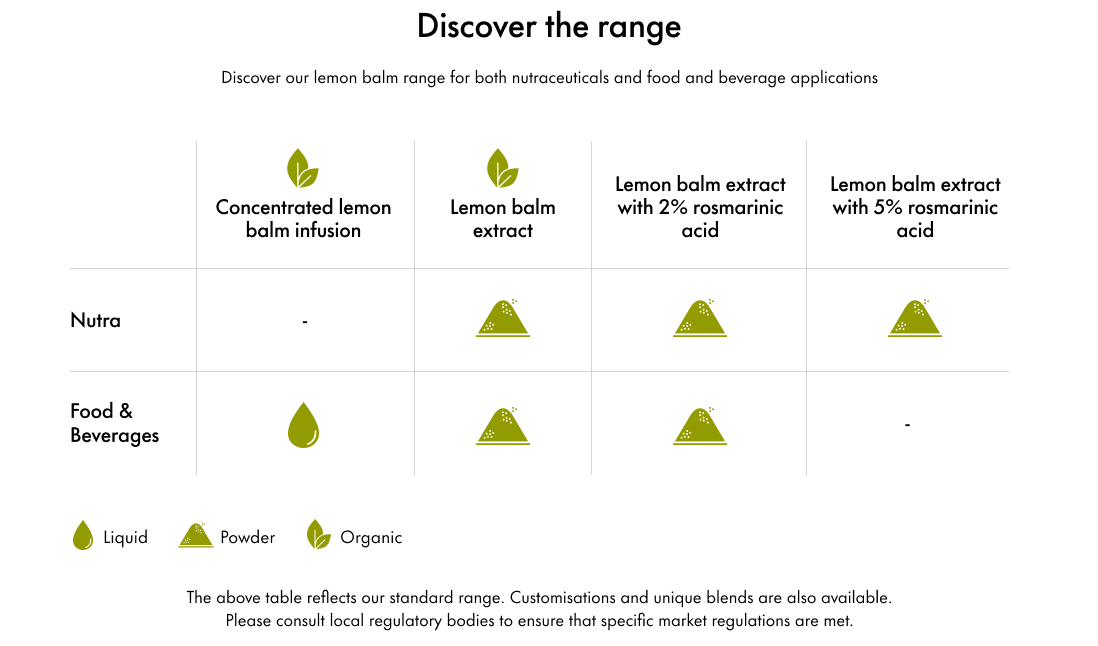





Natural stress management
research suggests that lemon balm contributes to relaxation¹ ² ³
Sleep support
multiple studies demonstrate that lemon balm may enhance sleep quality³
Numerous applications
lemon balm’s unique taste profile makes it a great addition to beverages as well as more traditional formats
Responsibly sourced
harvested by long-term partners applying best agricultural practices


The findings of a comprehensive review indicate that lemon balm may support sleep, help manage stress and low mood and promote overall quality of life.³
In regards to sleep, lemon balm has been shown to enhance sleep quality by reducing sleep latency and increasing sleep duration.³
In addition, lemon balm has been associated with improved mood and cognitive performance under stress, suggesting its efficacy as a natural mood enhancer.¹ ² ³
Lemon balm is believed to act mechanistically on several neurochemical pathways, including modulation of the GABAergic system, contributing to significant reductions in stress and anxiety levels in individuals.³

Our lemon balm is harvested according to the principles of our Sourcing4Good programme. As a company, Givaudan is committed to sourcing all materials and services in a way that protects both people and the environment by 2030.
Our lemon balm is grown through strong, long-term partnerships with local farmers across France, Italy, and Poland. The perennial herb, known for its aromatic leaves, is harvested from May to September, with up to three cuts per year starting from the second year of cultivation. With over 15 years of experience sourcing lemon balm and a main supplier located close to our production facility, we work directly on the field for a sustainable supply that benefits all stakeholders,while limiting the environmental footprint.
Through our close partnership with our main supplier in France, we have been able to reach the Gold & Silver grades of the Farm Sustainability Assessment (FSA) guidelines. This reflects all the hard work and dedication of farmers throughout the year taking good care of their lemon balm fields and preserving the quality of the botanical through gentle drying and post harvest handling.
This approach not only supports farmers by providing visibility and development opportunities but also fosters a sustainable supply chain that benefits all stakeholders involved.




























Generally considered healthier and more nutritious than the other main cereals, oats offer a full range of benefits in a single ingredient. OatWell™ can be provided in three different concentrations of beta-glucans, all delivering both soluble and insoluble fibres, along with an average of 21% - 23% protein.
OatWell™ uses a unique production process to fractionate the oat kernel into three product lines: beta-glucan products, oat flours, and oat oils. Our production process preserves the native structure of oat beta-glucans, retaining their high molecular weight during fractionation into oat brans with a high amount of beta-glucans.


The molecular weight of oat beta-glucan is essential to delivering health benefits. OatWell™'s beta-glucan has a very high molecular weight (2000-2500 kDa as naturally found in oats), which contributes to its unique viscosity and thickening properties. This viscosity has an important impact on physiological functions, such as reducing blood cholesterol levels, moderating blood glucose and insulin levels, and potentially benefiting satiety.
Benefits of OatWell’s high molecular weight:







The prebiotic effects of oat bran fibre have been validated through years of research. In a review by Malkki and Virtanen, they cite: “in the large bowel, soluble dietary fibre increases the fermentation activity, especially production of butyric acid, enhances growth and colonisation of some probiotic bacterial strains, increases production of microbial mass and thereby aids the removal of nitrogen via faeces. It also increases wet weight of stools, thereby alleviating constipation”.²¹
Research conducted on oat beta-glucan demonstrates that it meets three important criteria, confirming its status as a prebiotic fibre:¹ ²




